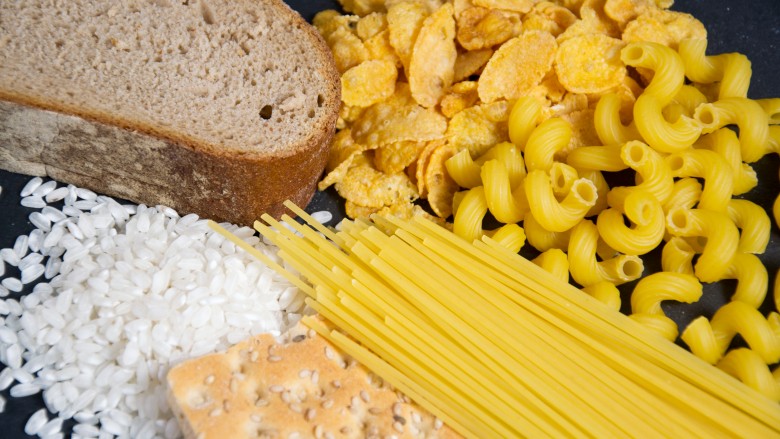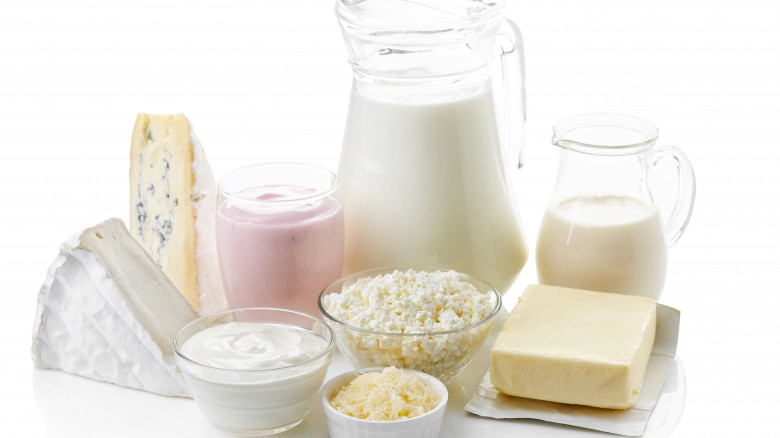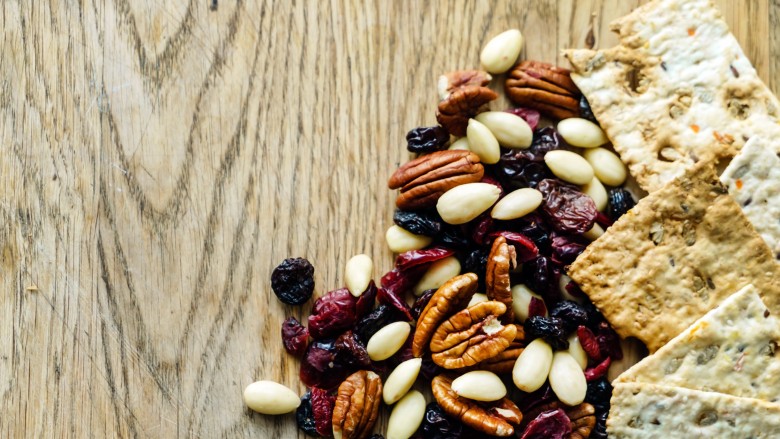Secrets Nutritionists Keep From Almost Everyone
Healthy eating can be really confusing. Like many of you, I strive to remain healthy and eat the foods that will prolong my life and help me feel great. The problem is there so many choices out there. I think I've tried every diet out there from the DASH diet to the Mediterranean to Whole30 to Paleo and the Keto diet. I've juiced and fasted and followed the Master Cleanse. I think I have read everything there is to know about living well and following a healthy diet. The more I read, the more confused I get. When I was younger, we were all taught that a low-fat diet was the way to go, yet nutritionists say today that healthy fat is good for us.
I've been particularly interested in how healthy fat can prevent Alzheimer's Disease. My mother is in the final stages of the horrible disease, and I don't want my own kids to suffer the pain I've known while watching my momma slowly slip away. So, healthy eating is definitely a lot more than eating to stay in a size 6. It's about living out our days as healthy as we can.
If you've been as confused as I have about what to eat, it might be time to take a look at some of the secrets nutritionists keep to themselves. Sure, we'd all like to be able to afford a personal nutritionist like celebrities, but the majority of us just don't have that kind of budget. It's true that many nutritionists do keep some secrets to themselves, meant only for their paying customers, but fortunately for all of us these experts have revealed some shocking nutrition secrets that you need to know — especially if you care deeply about your health.
Don't obsess over carbs
It seems like overnight the world went from a low-fat craze to a low-carb way of living. Most of us now know that a low-carb diet will result in weight loss. However, one of the reasons it's so effective is because of the calorie deficit that results in replacing calorie-heavy, high-carb foods with low-calorie fruits and vegetables. If we take in fewer calories than we use, we lose weight. It's as simple as that, nutritionists say.
"Cutting carbs can lead to weight loss, but only if it results in an overall calorie deficit," Georgie Fear, registered dietitian, nutrition coach, and author of Lean Habits for Lifelong Weight Loss told Prevention. "If you cut out all carbs but add lots of oil and nuts in their place, you might not lose weight because you aren't reducing overall calories. You can even gain weight, as I have seen many people do."
I lost weight following a slew of different diets that were all low-carb and mistakenly thought that was the key to my weight loss. I learned that I was losing weight because I was ingesting fewer calories and, unfortunately, those diets did nothing for my cholesterol levels and other health markers. In my case, I learned that eating healthy carbs like steel-cut oatmeal and quinoa is essential to heart health. I've found that we need to look at our own health needs and tailor our diet accordingly.
Also don't obsess about dairy
Another common misconception is that we should be avoiding dairy. While dairy can be a problem to those who are sensitive to lactose, others can benefit from the healthy components found in many dairy products. Yogurt, for example, is full of probiotics that can prevent inflammation that can lead to a variety of diseases including autoimmune diseases, arthritis, heart disease, and cancer. Yogurt is also chock-full of other beneficial nutrients, including protein, calcium, vitamin B-2, vitamin B-12, potassium, and magnesium.
Nutritionist Elaine Magee wrote for WebMD that yogurt can be beneficial in preventing constipation, diarrhea, colon cancer and inflammatory bowel disease. Of course, it's important to watch for added sugar and to make sure the yogurt you choose contains live cultures.
Other milk products are just as important in keeping your bones and heart healthy. The key, however, is to keep to low-fat dairy and avoid products that are high in fat, said Magee. "As you decrease the fat in dairy products, you cut calories, saturated fat, and cholesterol, while protein, calcium, and most other vitamins and minerals remain high," she said in another piece for WebMD.
But do obsess about added sugar
If there is one thing nutritionists agree on, it's the elimination of sugar from your diet. The reasons for getting rid of all forms of sugar go far beyond just empty calories and weight gain. Studies show that sugar can have devastating effects on metabolism that go way beyond its calorie content. Sugar increases cholesterol and triglycerides, which can lead to heart disease. It can also cause insulin resistance, resulting in Type II diabetes, as well as many other diseases like gum disease and cancer.
While getting rid of sugar sounds easy enough, you must read labels and be cautious of the added sugar in all foods, especially processed foods. "Even things that you don't think are sweet, like tomato sauce, crackers, condiments, and salad dressings can be packed with sugar," Diane Sanfilippo, certified nutrition consultant and author of The 21 Day Sugar Detox, told Health.
Some words to look for when you read labels that all mean sugar is an ingredient include high fructose corn syrup, dried cane syrup, invert sugar, molasses, sucrose (or any word ending in "-ose"), brown rice syrup, honey, and maple syrup, among others.
Avoid processed foods
We've all heard that we should avoid processed foods, but what exactly does that mean and why are they so bad anyway?
"The term processed food includes any food that has been purposely changed in some way prior to consumption," registered dietitian Torey Armul, a spokesperson for the Academy of Nutrition and Dietetics, said in an article for their website. "It includes food that has been cooked, canned, frozen, packaged or changed in nutritional composition with fortifying, preserving or preparing in different ways."
Processed foods in excess can lead to a variety of illnesses including Type II diabetes, high blood pressure, and obesity. There's even evidence of a link between processed foods and autoimmune diseases. Armul said eating some processed foods is unavoidable and nothing to worry about if it is consumed in moderation. She suggests, however, that you read nutrition labels carefully to look for any hidden sugar, fats, or other undesirable ingredients.
Beware of restaurants
While eating out is one of life's greatest pleasures, it can really sabotage your diet in more ways than one. Hidden calories and unhealthy ingredients are hard to manage, so what you choose — even the restaurants you choose — can make a difference.
"Don't expect yourself to control those portions by just putting your knife and fork down," Hope Warshaw, registered dietitian and author of Eat Out Eat Well told MSN. "Practice portion control from the point you place your order. Don't feel compelled to order an entrée. Choose from healthier appetizers, soups, salads, and small plates instead."
Most restaurants post their menus on the internet, so get on-line and check out the options before you head out, and don't be afraid to make special requests, Warshaw noted.
Be cautious about terms like "all natural"
Sometimes we can fall for labels that promise "all natural" ingredients or "organic," but these labels can often be misleading, nutritionists warn. "Most label lingo used on food packaging today is 'defined' by the U.S. government but is highly unregulated," Stefanie Sacks, culinary nutritionist and author of What the Fork Are You Eating? told Prevention.
While nutritionists agree that the words "all natural" generally mean nothing since most ingredients are, in fact, natural, there are other claims that we need to be cautious of when shopping. "Most of the time when a product says 'No Sugar,' it actually means that your product was sweetened with chemical (and possibly carcinogenic) sweeteners," Sacks told Prevention.
The same can be said of the "zero-calorie" claim. "The FDA defines 'calorie-free' as five or fewer calories per serving," registered dietitian Wendy Bazilian told Prevention. The website gave the example of the artificial sweetener Splenda, which is marketed as having "zero calorie" when a cup of the sweetener actually has 96 calories. Being educated about nutritional claims can make a huge difference in your health.
Water, water, water
We focus so much on what we eat, but what we drink is every bit as important for our health. Of course, staying away from soda and other sugary drinks like juice is a given, but let's talk about the benefits of water.
"A lot of times people think they're hungry when in reality they're just slightly dehydrated," Keri Gans, RD, author of The Small Change Diet told MyFitnessPal in a post for their blog. "If you're staying hydrated, you're less likely to mistake thirst for hunger."
Gans said the best way to guarantee that you are getting the needed amount of water is to divide your weight in half and drink that many ounces. For example, if you weigh 135 pounds, you should be getting 67 ounces per day, or about eight glasses. If you weight more, you'll need more water, which was recently confirmed in a study of about 10,000 people. So put down that soda and pick up the bottle of water.
Tricks to incorporate into your eating habits
All nutritionists have their own tips and tricks for eating healthy. In an article for Self magazine, nutritionist Sarah-Jane Bedwell, offered a few of her favorite tricks. These include eating off a salad plate rather than a dinner plate for portion control and never going more than four to five hours without eating something.
She also noted the importance of having breakfast. "My key to a balanced breakfast is one that contains some sort of protein and/or heart-healthy fat, complex carbohydrate, and a fruit or veggie," she said. "I try to follow this pattern daily."
She added that avoiding guilt about what you eat is one secret that will help avoid the stress that can be just as harmful for your health as what you eat. "I believe in guilt-free eating," she said. "I don't 'punish' myself if I eat something I don't feel good about. Instead, I look at it as a chance to learn for the future and listen to my body!" Good advice!
It's all about what works for you
There really are a lot of choices out there. If weight loss is your goal, then taking in fewer calories than you expend is really the only thing you have to worry about, no matter which type of diet you choose. However, if health is your goal, tailoring your diet to conform to your particular needs is where you should focus your energy. I have a family history of heart disease and Alzheimer's so I have been following the DASH and Mediterranean diets, all the while watching my caloric intake.
I enjoy eating and I have a sweet tooth, but I avoid excessive sugar and processed foods. That's my one rule. And while I will occasionally indulge in a sweet, I choose healthy ingredients and opt for homemade treats rather than those that are processed.
Remember, eating should not just be about remaining thin, although keeping at a healthy weight is important for your overall well-being. When you think about how you will fuel your body, don't just consider the short-term goal of losing weight, think about the long-term goal of remaining healthy your entire life. Bon appetit!










